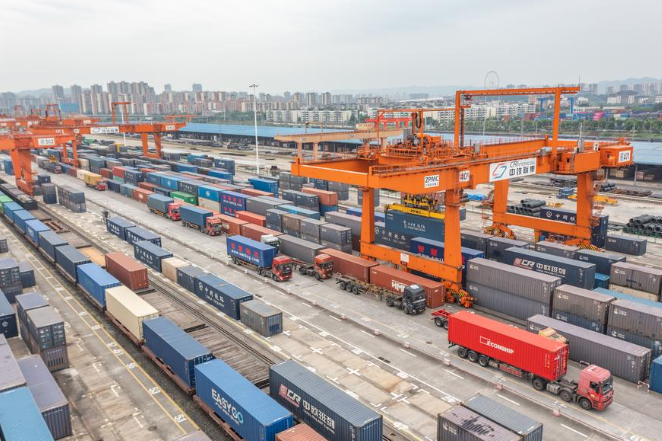China's efforts reveal deep truth of decarbonization


China is surging ahead in the race to decarbonize. In just over a decade, its solar energy capacity has exploded from under 1 gigawatt in 2010 to nearly 900 gigawatts in 2024. That's a staggering increase of nearly 900 times.
By contrast, the United States, despite its vast resources and innovative capacity, has seen far more modest growth, with solar capacity reaching 177 gigawatts over the same period. India, too, is outpacing the US in terms of solar energy growth.
The numbers alone suggest something important is happening in Asia, and China in particular, that isn't happening elsewhere at the same pace.
China's efforts aren't just statistics about electricity generation. They point to a more profound structural difference in how countries approach the energy transition. Decarbonization is not a technical fix or a matter of switching fuel sources. It is a revolution. It marks a departure from the fossil-fuel-based industrial system that has driven economic growth since the 18th century.
As such, it requires long-term government planning, public investment, policies to encourage private investment, and the political will to override the status quo. Capitalist markets alone cannot deliver this transformation. They were never designed to.
This is where many economies are struggling. The idea that markets will drive the energy transition simply because solar and wind have become "cheaper" than coal and gas nowadays is misleading and too simplistic.
While the cost per unit of renewable electricity generation may be low, renewable projects face structural obstacles in monetizing those savings.
Energy markets are designed around fossil fuels and were never intended to handle decentralized, intermittent, and zero-marginal-cost energy. The result is a mismatch between what the planet urgently needs and what the market is willing to finance.
In economies where electricity has been "marketized" under the assumption that private competition would yield efficiency and innovation, things are moving slowly because electricity isn't like smartphones or coffee shops. It is essential infrastructure, and a complex web of regulations, incumbent interests and unpredictable market volatility governs its pricing and distribution.
Renewable developers often struggle to secure stable revenues without government guarantees. And as subsidies are withdrawn, assuming the market will now take over, investment slows.
China's rapid deployment of renewable energy, on the other hand, is not primarily driven by the market. It reflects a strategic decision by the State to prioritize energy security, industrial competitiveness and climate resilience.
That's not to say there are no vested interests in China — of course there are. Fossil-fuel companies, provincial-level governments with primary interests in fossil fuels, and bureaucratic inertia are very real obstacles.
However, China's political system appears better equipped to manage and balance these interests in the service of national and global objectives. When the government signals a central pivot, such as its commitment to peaking carbon emissions before 2030 and achieving carbon neutrality before 2060, resources are aligned to make it happen on a long-term basis.
This contrasts sharply with the political paralysis that often characterizes other economies. In the US, for example, climate policy is subject to election cycles, partisan gridlock and legal challenges. One administration may support clean energy, while the next may roll it back, which is what is happening today under the Trump administration. Investors hesitate, and infrastructure projects stall. The result is inconsistency and delay.
This is not an argument for socialism, nor a dismissal of liberal democracy. Instead, it is a call to recognize that the energy transition requires strong, consistent governance over decades, spanning electoral cycles and administrations.
Of course, China is not without challenges. Its emissions remain high, coal still plays a significant role because energy security is vital, and local implementation varies. The development of artificial intelligence is also a huge energy guzzler. But the direction of travel is clear, and it is setting the pace for the rest of the world.
The 21st-century energy system cannot be built on 20th-century practices. If we want a livable planet, governments everywhere must abandon the myth that markets alone will deliver decarbonization. The alternative is not just ecological failure. It could well lead to economic decline and even geopolitical irrelevance. China has understood this. Will the rest of the world?
Michael Edesess is a mathematician and economist with expertise in the finance, energy and sustainable-development fields. He is an adjunct associate professor at the Hong Kong University of Science and Technology. Christine Loh is the chief development strategist of the Institute for the Environment, Hong Kong University of Science and Technology.
The views do not necessarily reflect those of China Daily.
































